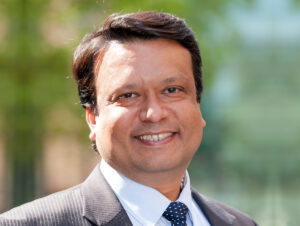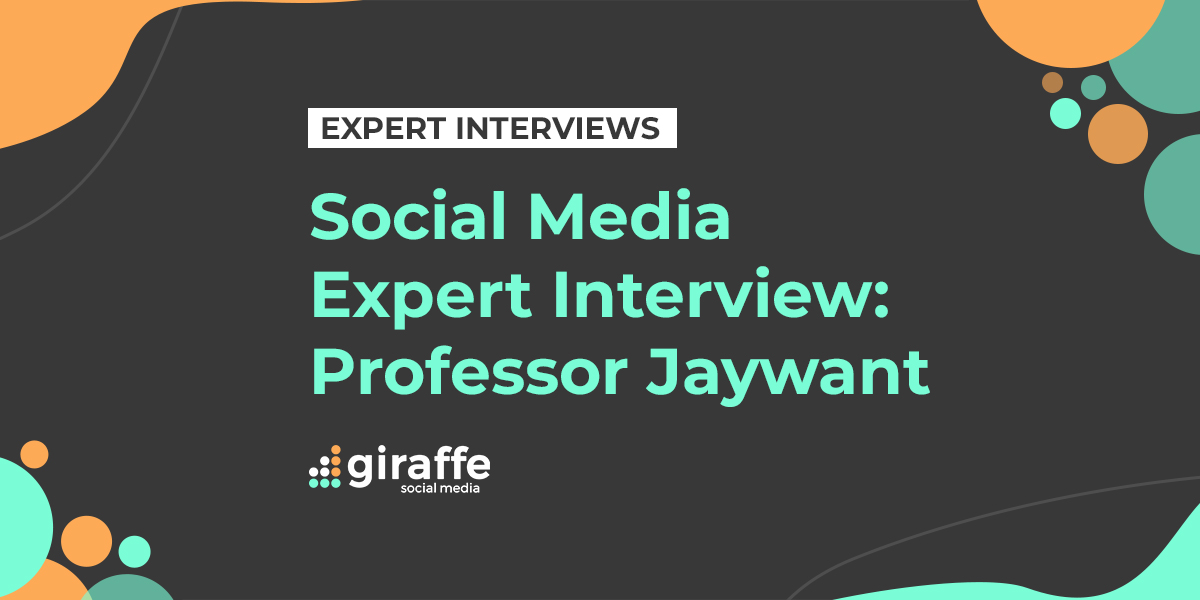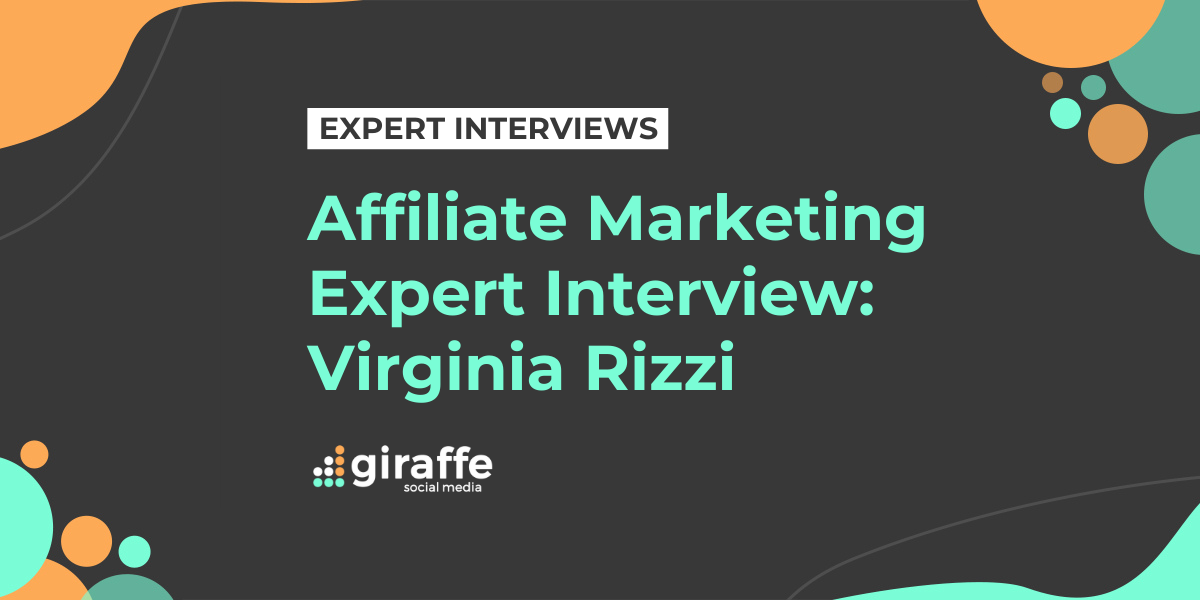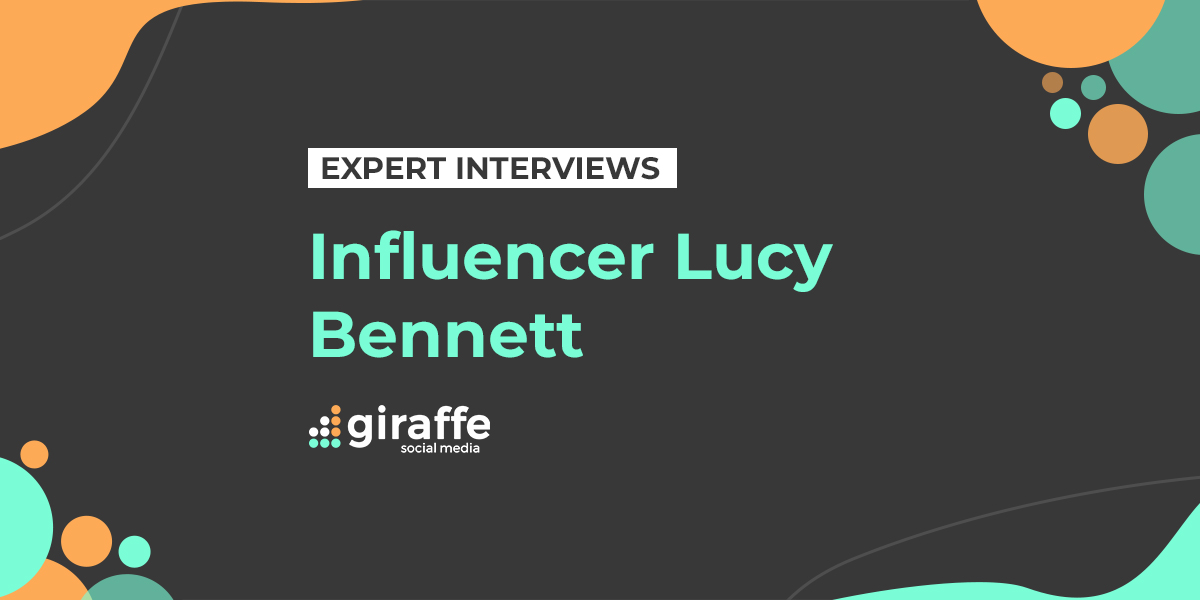This week we sat down (virtually) with Social Media Expert Professor Jaywant Singh, a Professor of Marketing at Southampton Business School, University of Southampton. We were keen to find out about his research and opinions on brand crisis communication, influencer marketing, and more.

On top of his academic duties in the Department of Digital and Data Driven Marketing, Jaywant Singh regularly provides consultancy to organisations on branding and consumer behaviour related issues. Professor Singh is also actively involved in research projects funded by external bodies and supervises doctoral candidates on topics on the interface of consumer behaviour and branding. Despite his busy schedule and the rapidly changing Higher Education environment, Social Media Expert Professor Singh found some time to answer a few of our questions.
What first interested you in marketing?
My interest in marketing was kindled when I was studying for my MBA at the University of Western Australia, where I came across the idea of doing research to apply in practice.
It suddenly struck me that marketing is not as simple as it seems. A lot is happening in the background. When you see advertising campaigns being adapted to account for cultural differences, and that is informed by scientific research. This realisation gave shape to my curiosity in understanding people’s behaviour, which I’ve been interested in for as long as I can think of!
Marketing is a relatively new discipline, but it’s one of the richest, as we are informed by many different fields such as economics, management, sociology, and social psychology. My research is based on theories from social and experimental psychology, behavioural economics, and mathematical modelling. The focus of my research is on generating scientifically robust results that have direct applications in marketing practice.
Can you tell us about your research into corporate brand crisis communication?
Corporate crisis communication caught my attention a few years ago. When I started doing research, I realised there was not much research on how corporations respond to a crisis and the impact it has on consumers. My research brings in consumer psychology to understand how people actually react to corporate crises, like the battery explosion situation of a well-known mobile phone brand from a few years ago. We found that for two weeks, there was no response from the brand, and then there was an attempt to deny responsibility.
There’s no template as yet for what makes an effective response strategy. It’s mostly done on an ad hoc basis. So, we delved into communications literature to find out what kind of frameworks are available. We sought to answer several questions with our research. What happens when a corporation denies culpability in a crisis? What happens when straightaway they acknowledge what has happened and apologise? Then there’s the apology, does that apology sound serious or sincere? All these factors have an impact on the consumer, on how they view the brand.
What did you find?
We found some very interesting answers. I’ll give one example from one of our latest papers in the Journal of Business Research, where we looked at brands that partner with social media influencers. As we all know, the spend on partnering with influencers has gone up astronomically in the last few years and is set to rise even further. We were trying to understand how people perceive the partnership between social media influencers and brands—looking specifically at what happens in a crisis situation when a brand uses influencers to communicate their response.
It would seem like a straightforward approach, as influencers have such large followings. We must clearly trust their messages. But we found that as consumers, we are not just passive receivers of advertising messages, we are processing the information we receive in a very active way. We are trying to understand, as is our basic psychology, whether there is a persuasion attempt at play by the brand or external agency. We tend to see influencers as trying to persuade us, and very often, we are aware that they are being paid by the brand.
Our findings indicate that if a brand communicates their crisis response on their own, they get a better response from consumers than if they do so in partnership with an influencer. If they already have associations with the influencer, the brand should employ them in a specific, values-driven way. They should commission them to share genuine, altruistic messages which highlight past good deeds by the brand. However, both parties must be very transparent about the basis of their relationship.
If you want to learn more about Influencer Marketing, click here to read our handy Giraffe Guide.
How about your research on how people react to brands espousing social causes?
Another stream of research I’m engaged in is trying to understand whether it has an impact on our attitudes and perceptions when a brand espouses a social cause.
We’ve found that there is what’s called a ‘spillover effect’, which occurs when positive attitudes toward a social cause spill over into attitudes toward the brand. This is ultimately is a great thing which creates positive perceptions towards the brand and eventually also more buying.
More recently, we’ve looked at what happens when companies go a little bit overboard with their messaging. Very often, advertising messages use intense emotional appeals, ‘Donating £3 a month will help this dying child,’ etc. My research team examined whether this intensity of emotion is trying to invoke guilt which is a fundamental emotion. We looked at whether evoking high levels of guilt with high-intensity ad campaigns would lead to better corporate image perception.
We found that actually, high intensity has a negative backlash. As again, consumers start seeing it as an attempt to manipulate us. We found that low and medium strength emotional intensity garners stronger consumer perceptions, especially in social cause-minded campaigns.
Otherwise, people start seeing it as if the brand trying to take advantage of the situation. Brands must be very careful when supporting social causes, especially during the current health crisis. It has to be done in a very genuine, values-driven way, consistent with the brand’s image.
Are you currently supervising any exciting doctoral candidates?
I really enjoy mentoring PhD students and seeing them develop as successful academics. One of my students, who has just collected her pilot data, is looking at ‘Customisation anxiety’. She’s researching the concerns we have during the nuanced experience of customising a product online. That the product might not turn out as we hope, and so on. It’s unique research, as we’ve gained access to a real-life luxury brand’s online customisation facility, which has enabled us to do a live field experiment.
Where do you get your latest marketing news and tips from?
I get my news from a variety of sources—newspapers, magazines and of course, marketing research literature. I read the latest publications in my field. Most importantly, I also observe. Marketing is so practice-driven, sometimes I just go window shopping and see how people are reacting to marketing stimuli. New ideas also often come from a diverse range of industry experts, in the form of problems they face or the insights they share.
As a Social Media Expert, what advice would you give a small business owner looking to market their business on social media?
It’s a great question, especially in the current circumstance, what should brands do? I have several key take-aways which are based on scientific, empirical research.
- Keep the message genuine and honest.
- Right now, you don’t need to be persuasive in your messages, don’t bombard people with messages to buy.
- Keep the message simple, remind customers who you are, what you do and what you care about. That way, when the purchase occasion arises, the consumer already has knowledge of the brand.
- Try to reach out to as many people as possible. This is where the unparalleled reach of social media influencers comes in handy. Use their captive audience of followers to increase your reach.
What’s the best book on marketing you’ve ever read?
How Brands Grow by Byron Sharp. It’s loved by practitioners and is based on 40-50 years of robust empirical research on how people buy things. It challenges the popular wisdom of trying to encourage a small number of customers to buy more to increase loyalty. Evidence suggests that most people are light buyers of brands, and the book suggests reaching out to as many people as possible in order to grow.
I have also co-authored a popular textbook on consumer behaviour. We’re working on the fourth edition right now. It was inspired by the textbooks we use in our curriculum. Some of which are tinged with the author’s personal biases and opinions and are rarely based on reliable research. Our book, Consumer Behaviour – Applications in Marketing, collates the latest research evidence on specific aspects of marketing such as pricing, store atmospherics, word-of-mouth, advertising, information-processing and decision making, and customer loyalty.
Do you have a favourite marketing campaign from recent years?
There are so many, but the Real Beauty Campaign by Dove, although it had its own share of controversies, it did espouse something which I think a lot of brands should do. It came across as genuine.
What you think the future of marketing looks like?
Civilisations were created by markets. All ancient civilisations grew around the exchange of goods and products. Business transactions are central to our existence, and marketing is the vehicle to establish and sustain them.
In the context of the current crisis, given the resource constraints, I think there will be more caution in marketing spend by companies. Businesses will be looking primarily to back campaigns with a good return on investment. Again, this highlights the importance of research-based marketing practice. You’re less likely to go wrong when you’re backed by solid scientific research, which also lends credibility to your activity.
The context might change, but marketing will always be central to businesses. How else will you inform the potential buyers!
To learn more about Professor Jaywant Singh and his many published works, you can visit his faculty page here.
You can also read more of our social media expert interviews here.





